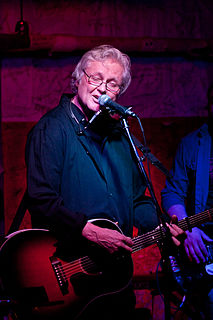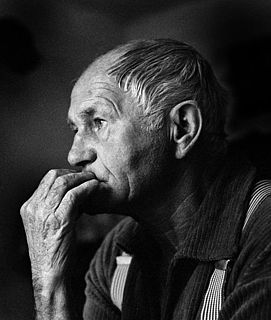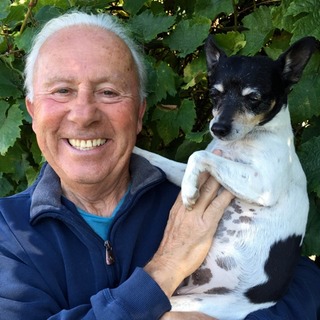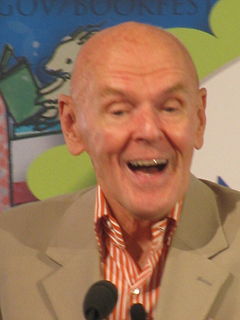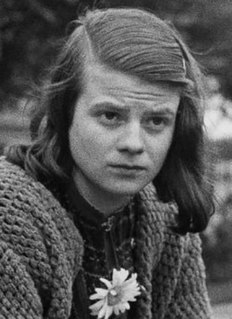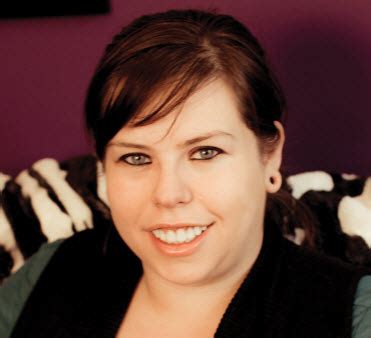A Quote by Chip Taylor
I could send myself right back to the day that I wrote "Angel Of The Morning," how it felt. I had a buzz through me that morning that was so powerful. I knew I had done something that meant something, because of that feeling. It wasn't a question of whether other people liked it ... I loved it. To me, it had to be one of the most important love stories of all time.
Related Quotes
I always loved twilight: it was the only time of day I had the feeling that something important could happen. All things were more beautiful bathed in twilight, all streets, all squares, and all the people walking through them; I even had the feeling that I was a handsome young man, and I liked looking at myself in the mirror, watching myself in the shop windows as I strode along, and even when I touched my face, I felt no wrinkles at my mouth or forehead.
I could feel myself changing physically. It was like something dropped out of the sky. Seeing her on the fire escape had given me a certain feeling, and then when I saw the photograph of her, it gave me a similar feeling. And I thought that was an incredibly powerful thing - that a photograph could give you a feeling that was similar to a feeling you had in the physical world. Nobody could've told me that. I knew what I was going to do for the rest of my life.
My mother had died when I wrote my first book. I was twenty-seven, so it was right at the beginning of my writing life. I don't know if she had lived, if I would have done it, certainly not quite like I did. But, you can't rethink it. You wrote what you wrote, it meant something to other people, and that's your good.
The occurrence of an event is not the same thing as knowing what it is that one has lived through. Most people had not lived -- nor could it, for that matter, be said that they had died-- through any of their terrible events. They had simply been stunned by the hammer. They passed their lives thereafter in a kind of limbo of denied and unexamined pain. The great question that faced him this morning was whether or not had had ever, really, been present at his life.
One morning, in cool blood, I slipped a noose about its neck and hung it to the limb of a tree; — hung it with the tears streaming from my eyes, and with the bitterest remorse at my heart; — hung it because I knew that it had loved me, and because I felt it had given me no reason of offence; — hung it because I knew that in so doing I was committing a sin — a deadly sin that would so jeopardize my immortal soul as to place it — if such a thing were possible — even beyond the reach of the infinite mercy of the Most Merciful and Most Terrible God.
Uncertain as I was as I pushed forward, I felt right in my pushing, as if the effort itself meant something. That perhaps being amidst the undesecrated beauty of the wilderness meant I too could be undesecrated, regardless of the regrettable things I'd done to others or myself or the regrettable things that had been done to me. Of all the things I'd been skeptical about, I didn't feel skeptical about this: the wilderness had a clarity that included me.
When I was able to get home it first hit me that you had left and I couldn't do anything about it. Every day before that an evening with you was waiting for me after school, now no more, strange feeling. I had grown too accustomed to your warmth. That is also a danger. At home I looked at the notebooks that you had bought and I got the stupidest surge of hope that I'd find something of you, something especially for meant for me. I would so much like to have something of you that I could always keep by me, that nobody else would notice.
After the novel was published, I came to feel that I couldn't call myself Orthodox anymore. It's so patriarchal, anti-women, anti-gay. There was something about writing 'Disobedience'... it felt like I had put it all in the book. I had done my best by it, recorded what it meant for me. I felt I was done.
I loved Jack because of every little thing about him. The way he laughed, the way he made me smile, the way he'd stay up until nine in the morning watching zombie movies he'd seen a hundred times, and the way he could never hold a grudge. I loved him because I loved him, not because it was fate or destiny or in my blood, We had chosen each other, and that felt more powerful and more magical.
You're looking, moment by moment and scene by scene, how you can tell the most interesting story. So, we had this great short and we knew that we had a story about a boy and his dog. Because we had that pure emotional core, we could go on crazy tangents and always come back to Victor and Sparky. When I wrote in stuff like Weird Girl and the cat poop, Dutch Day and the windmill, it felt like it was part of Tim's universe.
